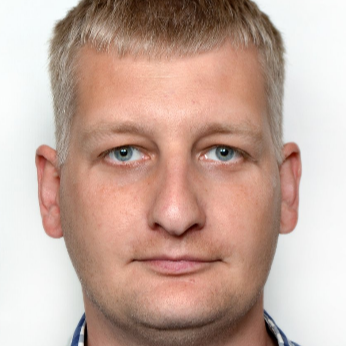International Journal of Computer Network and Information Security (IJCNIS)
IJCNIS Vol. 12, No. 5, 8 Oct. 2020
Cover page and Table of Contents: PDF (size: 1738KB)
Performance Study of Spread Spectrum Systems with Hard Limiters
Full Text (PDF, 1738KB), PP.1-15
Views: 0 Downloads: 0
Author(s)
Index Terms
Telecommunication networks, Primitive polynomials, Spreading coding sequences, Limiters, Computer simulation
Abstract
Use of spread spectrum systems in telecommunications is studied. It is shown that spread spectrum techniques can substantially enhance noise and interference immunity in the currently deployed information transmission networks. Primitive polynomials are proposed to obtain respective spreading codes. A spreading code consisting of 1023 chips is synthesized and its characteristics are studied.
It is deduced that powerful interferences can exceed dynamic range of the receiving part of the system and, as a result, deteriorate information transmission. To overcome this problem, utilization of limiters is proposed, in which limitation level equals that of the internal noise of the receiving part. Computer simulation is employed to test the performance of the proposed solution. Performance of the spread spectrum system for information transfer is studied both without the limiter and with the limiter.
Research results show that, for binary modulation, performance of the system with limitation and without limitation is nearly identical while limiters can substantially reduce requirements for the dynamic range.
Compared to the existing approaches, it is proposed to use the synthesized spreading coding sequence with the limitation technique in practical implementations of those telecommunication networks, in which noise immunity and transmission concealment are required, such as in unmanned aerial vehicles. This can replace currently used approaches, such as frequency hopping, transmission power adjustment and antenna pattern changes.
Cite This Paper
Oleksandr Pliushch, Viktor Vyshnivskyi, Volodymyr Tolubko, Vadym Mukhin, Serhii Ishcheryakov, Mykhailo Okhramovych, Vitalii Loza, "Performance Study of Spread Spectrum Systems with Hard Limiters", International Journal of Computer Network and Information Security(IJCNIS), Vol.12, No.5, pp.1-15, 2020. DOI:10.5815/ijcnis.2020.05.01
Reference
[1]Edited by Kamesh Namuduri, Serge Chaumette, Jae H. Kim, James P. G. Sterbenz. UAV Networks and Communications. UK: Cambridge University Press, 2017. 242 p.
[2]Andreas Springer, Robert Weigel. UMTS: The Physical Layer of the Universal Mobile Telecommunications System. USA: Springer Science & Business Media, 2013. 298 p.
[3]Clint Smith, Daniel Collins. Wireless Networks. USA: McGraw Hill Professional, 2013. 752p.
[4]Byeong G. Lee, Seok C. Kim. Scrambling Techniques for Digital Transmission. USA: Springer Science & Business Media, 2012. 448 p.
[5]Oleksandr Pliushch, “Gradient Signal Processing Algorithm for Adaptive Antenna Arrays Obviating Reference Signal Presence,” presented at the IEEE International Scientific-Practical Conference PIC S&T, Kyiv, Ukraine, October 8–11, 2019, Paper 190.
[6]Oleksandr Pliushch, Viktor Vyshnivskyi, Serhii Toliupa, Anatolii Rybydajlo. “Utilization of Clipper Circuits to Improve Efficiency of the Gradient Signal Processing Algorithm for Adaptive Antenna Arrays” // Proceedings of the 2019 IEEE International Conference on Advanced Trends in Information Theory (IEEE ATIT 2019). Kyiv, Ukraine, December 18-20, 2019.
[7]Oleksandr Pliushch, Viktor Vyshnivskyi, Serhii Toliupa, Anatolii Rybydajlo. “Studying behavior of the Gradient Signal Processing Algorithm for Adaptive Antenna Arrays in Telecommunication Environment”//Proceedings of the 15th International Conference on Advanced Trends in Radioelectronics, Telecommunications and Computer Engineering (TCSET - 2020). Lviv-Slavske, Ukraine, February 25-29, 2020.
[8]Lee, Jhong S., Miller, Leonard E. CDMA systems engineering handbook. Boston, London: Artech House, 1998. 1228 p.
[9]Robert J. Mailloux, Phased Array Antenna Handbook, 3rd ed. Boston: Artech House, 2018.
[10]V. A. Grigoriev, S. S. Shchesnyak, V. L. Gulyushin, Yu. A. Raspaev, I. A. Hvorov and A. S. Shchesnyak. Adaptivnie Antennie Reshotki, Uchebnoye Posobie v Dvuch Chastyah. Chast 1. [Adaptive Antenna Arrays, Textbook in Two Parts, Part 1]. Seint-Petersburg, Russia: Universitet ITMO, 2016. (In Russian)
[11]Evgenii Krouk, Sergei Semenov. Modulation and Coding Techniques in Wireless Communications. USA: John Wiley & Sons, 2011. 680 p.
[12]V. A. Grigoriev, S. S. Shchesnyak, V. L. Gulyushin, Yu. A. Raspaev, I. A. Hvorov and A. S. Shchesnyak. Adaptivnie Antennie Reshotki, Uchebnoye Posobie v Dvuch Chastyah. Chast 2. [Adaptive Antenna Arrays, Textbook in Two Parts, Part 2]. Seint-Petersburg, Russia: Universitet ITMO, 2016. (In Russian)
[13]D. D. Ganzii, P. V. Rusakov and G. I. Troshin. Adaptivnie Antennie Sistemi [Adaptive Antenna Systems]. Moscow, Russia: Radiotechnika, 2019. (In Russian)
[14]John Volakis, Antenna Engineering Handbook, 5th ed. New York: McGraw-Hill Education, 2018.
[15]Holma H., Toskala A. WCDMA for UMTS. Radio Access for Third Generation Mobile Communications. -2nd ed. - New York: John Wiley&Sons, 2002. - 384 p.
[16]Priti S. Sanjekar, J. B. Patil, " Wavelet based Multimodal Biometrics with Score Level Fusion Using Mathematical Normalization", International Journal of Image, Graphics and Signal Processing(IJIGSP), Vol.11, No.4, pp. 63-71, 2019
[17]Oli Lowna Baroi, Md. Shaikh Abrar Kabir, Azhar Niaz, Md. Jahidul Islam, Md. Jakaria Rahimi, " Effects of Filter Numbers and Sampling Frequencies on the Performance of MFCC and PLP based Bangla Isolated Word Recognition System", International Journal of Image, Graphics and Signal Processing(IJIGSP), Vol.11, No.11, pp. 36-42, 2019.
[18]Erwin, Dwi Ratna Ningsih, " Improving Retinal Image Quality Using the Contrast Stretching, Histogram Equalization, and CLAHE Methods with Median Filters", International Journal of Image, Graphics and Signal Processing(IJIGSP), Vol.12, No.2, pp. 30-41, 2020
[19]Anis-Ul-Islam Rafid, Amit Raha Niloy, Atiqul Islam Chowdhury, Nusrat Sharmin, " A Brief Review on Different Driver's Drowsiness Detection Techniques", International Journal of Image, Graphics and Signal Processing(IJIGSP), Vol.12, No.3, pp. 41-50, 2020.
[20]V.Mukhin, A.Volokyta, Y.Heriatovych, P. Rehida. Method for Efficiency Increasing of Distributed Classification of the Images based on the Proactive Parallel Computing Approach.// Advances in Electrical and Computer Engineering, Vol.18, N. 2, 2018. – pp. 117 -122.






